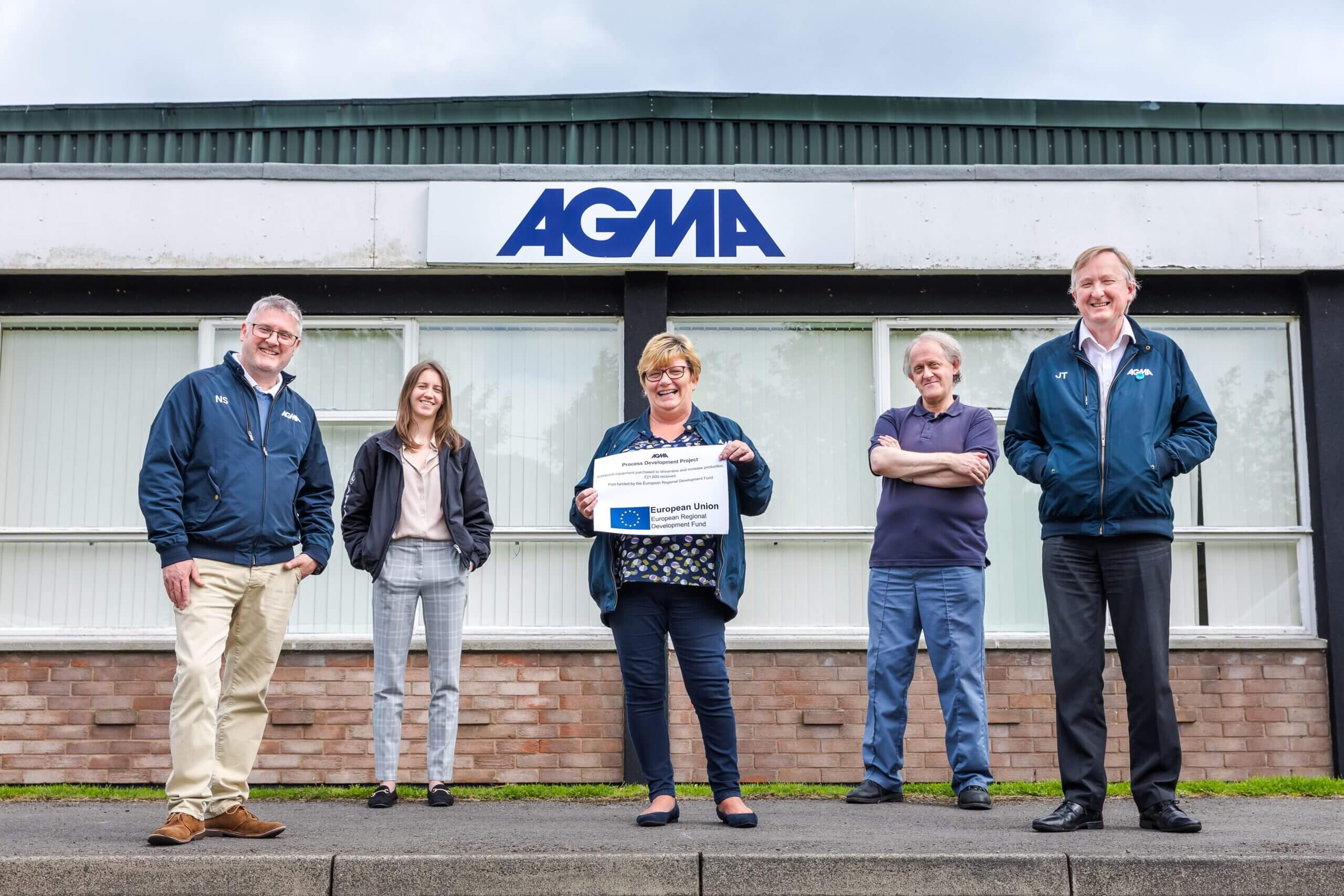A FAMILY-OWNED manufacturer of cleaning and hygiene solutions has revealed how major investment in new machinery helped it step up to the fight against Coronavirus.
AGMA Ltd, based in the rural town of Haltwhistle, Northumberland, designs and manufactures sterile and non-sterile cleaning and biocidal products, which it exports to customers in over 30 different countries.
Serving a broad range of industries – from the NHS to major global blue-chip pharmaceutical, biotechnology and oil companies – the company, like most others in its sector, saw its order book swell during the Coronavirus outbreak, with production lines running at full capacity while staff adhered to social distancing measures.
However, despite growing demand from its client base during what has been an incredibly testing period for the industry, the company was still able to join the global fight against Covid-19, thanks to grant funding and expert advice from the Sustainable Advanced Manufacturing (SAM) Project.
The support helped AGMA – a Royal Warrant holder – identify areas of the business that could be improved through automation – such as the production of its triggered sprays – and invest in the machinery required to automate the process, safeguarding 30 jobs while increasing output, reducing lead-times and increasing sales.
John Taylor, finance director at AGMA Ltd, said: “Our sanitisers and hand gels have become extremely popular both abroad and domestically over recent months due to the pandemic. However, as a family company that is deep-rooted in Haltwhistle, we’ve continued to stand-by our commitment to give back to the community that’s served us incredibly well over 52 years, by continuing to donate products locally. We also supply the NHS and various other organisations – while fulfilling orders for clients.
“This would not have been possible had it not been for the support we received from the SAM Project last year. The funding and support was crucial to help us understand how automation can benefit our business and allow us to invest in new machinery, introduce new procedures and make us more competitive, while reducing production costs, expanding into new areas and safeguarding jobs.
“As a company, the majority of our competitors are multi-global organisations that – for the past 50 years – we’ve had to really punch above our weight to compete with. This support has allowed us to tap into R&D expertise, previously out of reach, and invest in state-of-the-art machinery that will help us compete for years to come. We can’t thank the team enough for all of its support.”
Having seen output double and a significant rise in sales over the last 2-3 years, AGMA is now looking to the future as it continues investing in new machinery and processes, as well as ramping up its R&D activity as it uses its increased manpower to brings new innovations to market.
John added: “Looking forward, we’re hoping to continue growing and exploring how we can continue to embrace new technologies. The support from SAM has really opened our eyes to the potential of industry 4.0 and how processes such as automation can help us grow as a business, and we’re aiming to continue investing in new technologies as a result of this over the next 12 months.
“As an export nation, our manufacturing sector is vital to our economic success and projects such as SAM will play a pivotal role if manufacturing companies such as AGMA are to continue competing on the global stage long into the future.”
SAM offers four key support functions to businesses that are gearing up to grow, including access to technical expertise, with industrial specialists using their skill and expertise to guide businesses through the process of understanding and implementing technology; R&D, with a team of researchers able to support with the development of new products and processes; factories and facilities, including access to £1m of industry-leading advanced technology and equipment; and its grants scheme, that offers financial assistance to businesses that qualify.
Ken Teears, project manager at SAM, said: “The SAM Project was launched in a bid to help manufacturers in the North East LEP area lead the way in product, process and technology innovation – and AGMA Ltd is a perfect example of this in action.
“The company is a fantastic case study of how manufacturers can innovate and grow by embracing new technologies and processes. Not only has investing in automation helped the company increase output and sales but it has also helped safeguard 30 jobs and maximise the potential of its workforce.
“However, the support on offer from SAM is only available for a limited time, therefore I’d recommend any SME manufacturer in the North East LEP area that has plans to grow over the next few months, or that is having to adapt due to the pandemic, to get in contact with us to find out if they’re eligible to tap into the support on offer.”
Sustainable Advanced Manufacturing is a collaboration between European Regional Development Fund (ERDF) and University of Sunderland, that was set up to support North East (LEP) SME manufacturers to explore and introduce new technology to improve their products or processes. It was funded with a £2.6m commitment from ERDF and £2.5m from the University of Sunderland, and is aimed solely at small and medium sized manufacturers (under 250 employees), with an annual turnover of less than €50m (£45m approx.)

